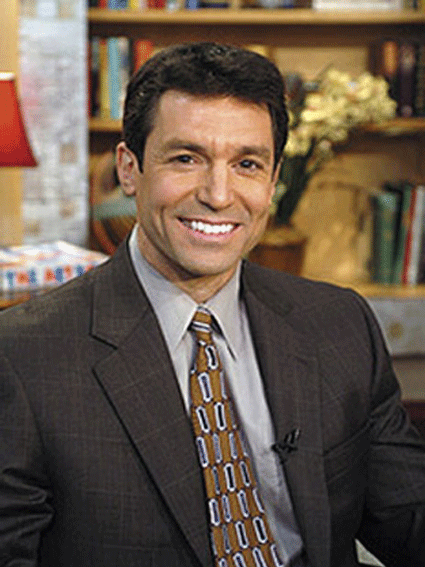
Diet and Health
Bariatric Surgery
The Scalpel Cuts Both Ways

For individuals whose excess weight threatens their health or mobility, bariatric surgery – including gastric bypass – can yield great potential benefits. The procedure, however, is expensive and not risk-free. And in a social sense the availability of the surgery should not efforts to prevent obesity.
By: Dr. David L. Katz*
I have had to work pretty hard to talk the occasional patient into bariatric surgery; going “under the knife” is always scary.
In general, however, I work pretty hard to talk our society out of it. If anything in medicine is the proverbial “double-edged sword,” it's the scalpel blade used to perform a gastric bypass.
The case for bariatric surgery is quite compelling. Once obesity develops, it's rather hard to reverse permanently. Testimony to this is found in the multibillion dollar weight loss industry of lotions, potions, programs and books -- not to mention the more intimate evidence you might have from any personal weight control struggles. In contrast to most of the offerings that run from faint if genuine hope to outright snake oil, bariatric surgery -- which includes but is not limited to gastric bypass -- truly works. Large amounts of weight, sometimes measured in the hundreds of pounds, are routinely lost. More importantly, most of that lost weight stands the test of time. It is possible to gain back weight after bariatric surgery, but it is a challenge.
The sustainable weight loss from the surgery owes something to the obvious shrinking of the stomach. But the surgeon's hand is actually reaching much deeper into human physiology than that. The stomach produces hormones, including one called ghrelin that stimulates appetite. The surgical procedure that bands or bypasses the stomach also dials down appetite at the level of hormones. That's powerful stuff.
The benefits are powerful as well, such as the enhanced mobility that result from knees, hips and backs carrying dozens if not hundreds of pounds less each time they are set in motion. 
Significant weight loss tends to improve almost all risk factors for heart disease, from blood pressure to cholesterol, protecting against both heart attack and stroke. Bariatric surgery has been shown to prevent the onset of type 2 diabetes in people on the brink, and even to reverse the condition -- the word “cure” has been used -- outright. Just last week, researchers at McGill University reported at the American Society for Metabolic and Bariatric Surgery in Washington, D.C., that the surgery defends against cancer, too. We have long known that obesity is a potent risk factor for almost all cancers, although the issue gets less attention than it deserves.
The best evidence comes from an American Cancer Society study of almost 1 million people, followed for decades. In this huge cohort, the higher the body mass index, the higher the risk for virtually every kind of cancer observed.
But we didn't know, until now, that the relationship cuts both ways -- that weight loss would reduce cancer risk. The current study, which compared 1,000 people who underwent bariatric surgery to nearly 6,000 comparably heavy people who didn't, reported an 80 percent reduction in cancer in the surgery group over a 16-year period. So bariatric surgery confers protection against virtually all the leading causes of death in our society: heart disease, cancer, stroke, diabetes. How could there be an argument against it?
There are approximately 4,000 tragic deaths due to drowning each year in the United States. To my knowledge, there is no effort to devise a surgical procedure to implant gills in people. We accept that people can drown even when human physiology is working just as it should. The root cause is prolonged exposure to an environment hostile to normal human physiology. Our efforts to prevent this are appropriately focused on personal empowerment, and the environment: swimming lessons, lifeguards and fences around pools.
The causes of obesity are similarly environmental: a surplus of tasty calories and labor-saving technologies. We are as vulnerable to drowning in calories as in water. The danger in undue reliance on bariatric surgery is that we will fail to attend to the causes of epidemic obesity -- and thus not work to prevent obesity by enhancing opportunities in every community and household for more health-promoting applications of feet and forks.
Surgery is no panacea. The financial cost alone of a $25,000 procedure that has increased in frequency tenfold in five years could be ruinous. The human cost of major surgery, applied to ever younger patients, is far from trivial. So, I have some advice for individuals. If excess weight is a threat to your health or mobility; if you have or are facing type 2 diabetes; if you have tried to lose weight and simply can't manage it, bariatric surgery deserves careful consideration. The procedure could restore function, improve the quality of your life -- and quite possibly even save it. The surgery is not risk-free, but the potential benefits may be far greater.
I also have advice for us all that cuts the other way. If reversing obesity lowers the risk of diabetes, heart disease, stroke and cancer -- so does preventing it. By and large, we have the means and know the ways to do this at the societal level. We just need the will.